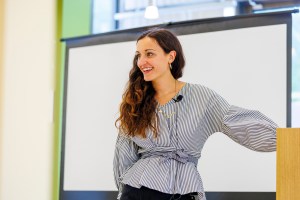Arts & Culture
-
Schlesinger exhibit turns spotlight on largely invisible past
Among the artifacts on display in a new exhibition at the Schlesinger Library are photos of Ainu and Visayan women who were displayed as “living exhibits” at the 1904 St.…
-
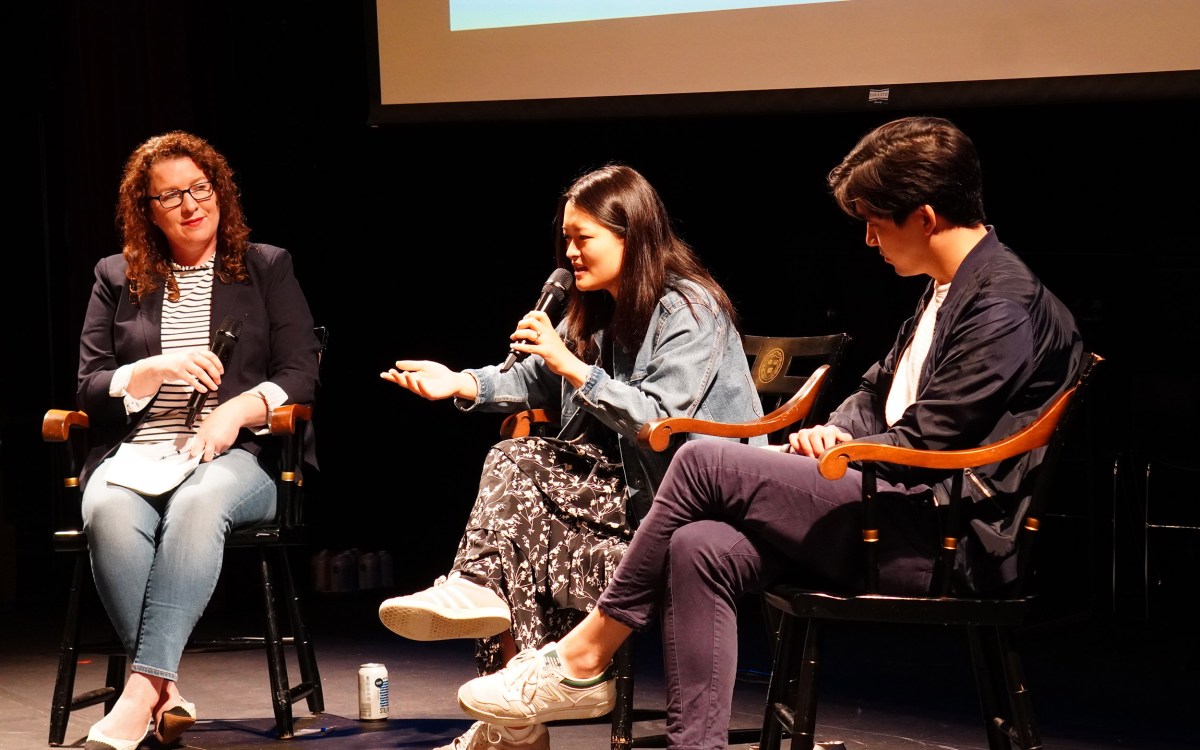
Making creation a career
Alumni in the arts share insights and lifelong impact of campus involvement
-
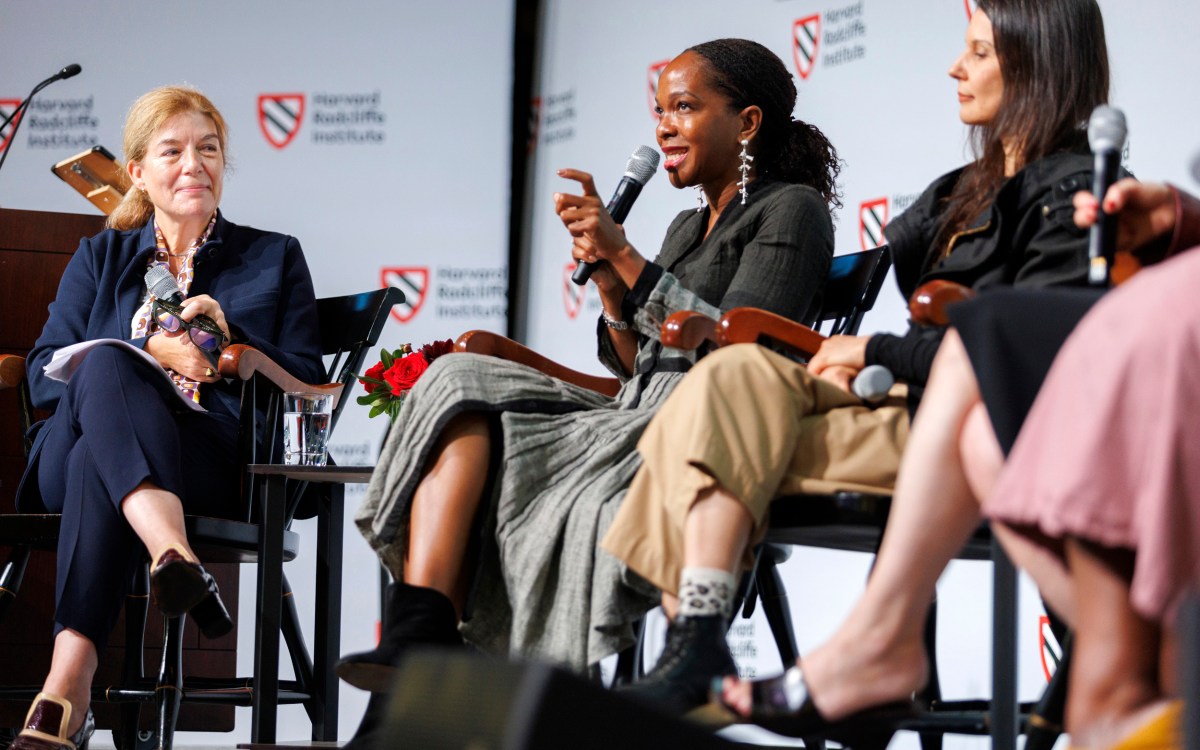
Art and Big Ideas are not strange bedfellows
Both spring from hard questions, benefit from interdisciplinary feedback, former Radcliffe fellows say
-
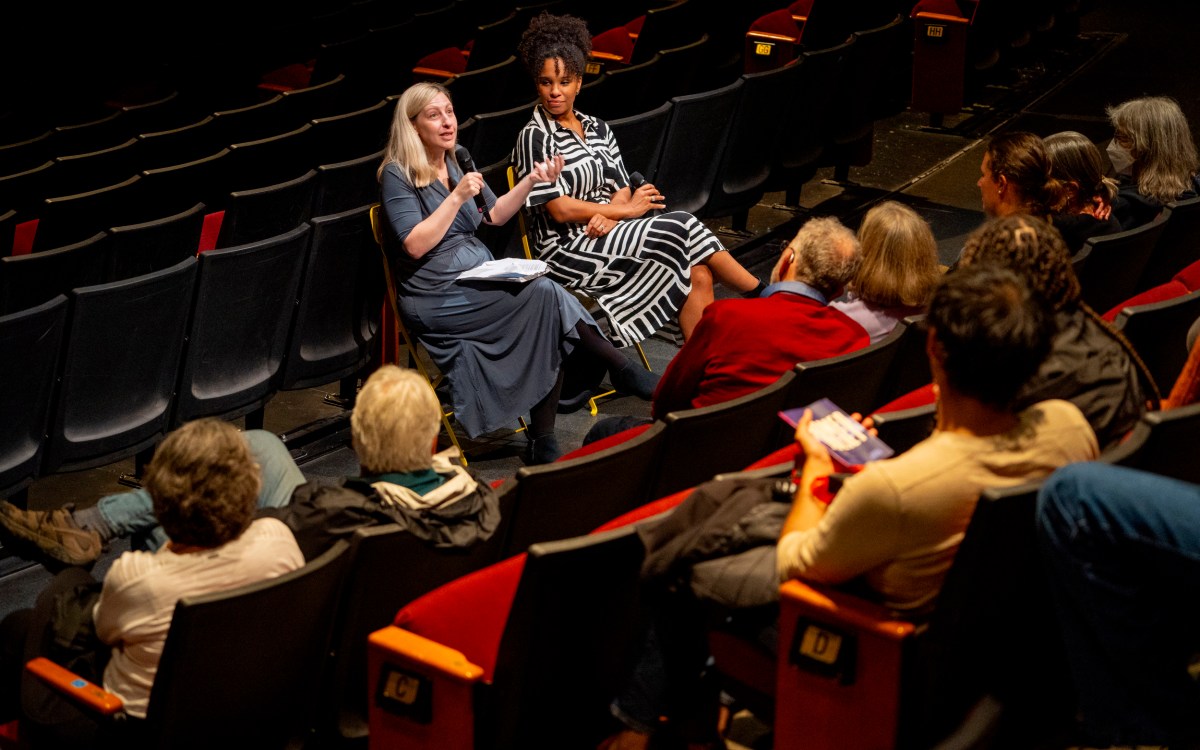
Was Romeo ‘love-bombing’ Juliet?
Globe relationship columnist sorts timeless elements of youth, love, social divisions of 16th-century classic in new A.R.T. production
-

‘Unseen Truth’ shows the real picture behind ‘Caucasian’ ideals
Sarah Lewis explores the false foundation of America’s racial hierarchy in new book
-
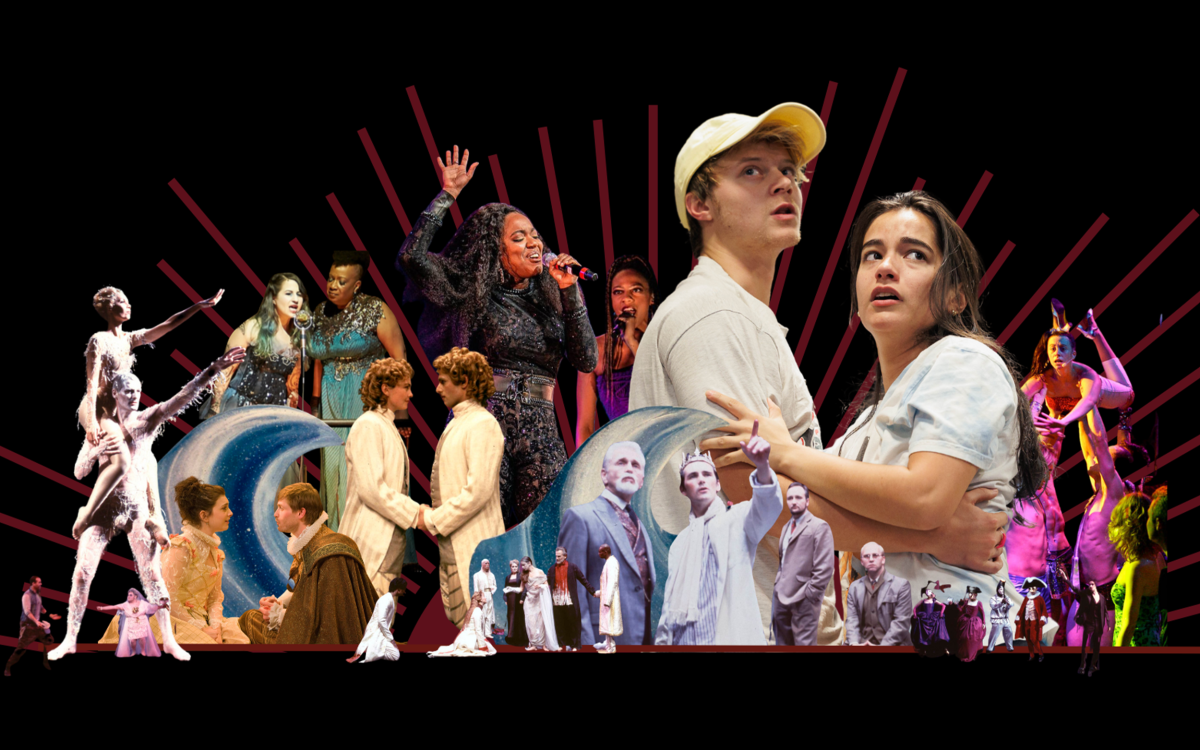
A history of Shakespeare at the A.R.T.
‘Romeo and Juliet’ is latest in long line of productions stretching back to theater’s inaugural staging in 1980 of ‘A Midsummer Night’s Dream’
-
Exhibit unveils forgotten photos
An early 20th century visitor to Harvard – especially if he or she were a forward-thinking person who believed that science was the best approach to solving society’s problems – would probably be eager to climb to the top floor of Emerson Hall to see the newly installed Social Museum. The museum was the brainchild of Francis Greenwood Peabody, the Plummer Professor of Christian Morals and founder of the Department of Social Ethics, which later became the Sociology Department. Peabody believed that just as biology students had the Museum of Comparative Zoology and anthropology students had the Museum of Archaeology and Ethnology, students who wanted to study social conditions needed a museum of their own, a place where they could contemplate the ills of modern life and the methods used to ameliorate them.
-
Tony Award winner to impart wisdom
Tony Award winner Michael Cerveris will conduct two workshops for Harvard undergraduate actors and singers performing audition monologues and songs on Feb. 26 at 3 and 7 p.m.
-
Prohibition politics created groundwork for modern liberalism
While Prohibition in America failed to rid the nation of demon rum, it did unleash a wave of change in the American cultural and political sphere whose ripples are still seen today. According to new research by Lisa McGirr, a historian in Harvard University’s Faculty of Arts and Sciences (FAS), the fallout from the impossible effort of enforcing the Volstead Act played a key role in creating the political alliances that have endured for the past 70 years.
-
The joys and perils of building a superb film archive
When Bette Davis called in sick during her time as a contract player with Warner Bros., the studio was known to send their own physician to her house to make sure she wasn’t malingering. Haden Guest mentions this intriguing fact as one of the many insights into the Hollywood studio system he gained while working as curator and acting director of the Warner Bros. Archives at the University of Southern California, the largest and most comprehensive collection of materials from a single Hollywood production company.
-
Powerful documentary on genocide screened at Kennedy School
Those who loudly refused to let the world turn a blind eye or feign helplessness as genocides ravaged millions of lives this century and last are sometimes dubbed “screamers.” The Harvard community got an earful Monday evening (Feb. 5) from an unlikely quartet of modern screamers – the chart-topping, earsplitting heavy metal band System of a Down – during an advance screening of the new documentary “Screamers” at the John F. Kennedy School of Government’s Starr Auditorium.
-
Cross-cultural study of entrepreneurs has surprising findings
Bat Batjargal, an Oxford-trained political scientist and lecturer in social sciences at Harvard, talks a mile a minute – and can do so in five languages. He sprinkles every conversation about his work (on social network theory) with a constant phrase: “Fascinating stuff.” In two talks last week – on the social networks of entrepreneurs – Batjargal used another frequent phrase: “Surprise, surprise.” Preliminary findings in his large-scale, cross-cultural study of 377 entrepreneurs in China and Russia suggest that gender affects the revenues, growth, and profits of new ventures in surprising ways.
-
The many lives of Henry Wadsworth Longfellow
Most of us only get one life. Henry Wadsworth Longfellow – whose 200th birthday bicentennial is this month – has had four. In the first, he arrived in Cambridge in 1837, fresh from a six-year professorship at Bowdoin College. Longfellow, sporting long hair, yellow gloves, and flowered waistcoats, cut quite a romantic, European-style figure in what was then a provincial village of 6,000.
-
New York artist expresses long passion for polar exploration
They are odds and ends of lives long past, lived in the cold and ice of the world’s polar regions. They are bits and pieces that give a feeling as much as they tell a story: an old photograph here, a line drawing there, a braided ribbon, a newspaper headline. The collages lining the walls in the Harvard Museum of Natural History’s (HMNH) newest exhibit, “Echoes in the Ice,” tell the heroic and sometimes tragic story of the exploration of the world’s poles through the eyes of New York-based artist Rik van Glintenkamp.
-
Barenboim to deliver Charles Eliot Norton Lectures
World-renowned conductor, pianist, and recording artist Daniel Barenboim will deliver the Charles Eliot Norton Lectures beginning Sept. 25. The set of six talks titled “Sound and Thought” will run Sept. 25-29 and Oct. 3 at 4:30 p.m.
-
Playwright Mayer ’10 is recipient of arts award
Harvard College freshman and playwright Jonathan Mayer will debut “Mistakes, Inc.” as part of VSA arts 22nd annual Playwright Discovery evening Sept. 28 at the Kennedy Center for the Performing Arts in Washington, D.C. An international nonprofit organization affiliated with the Kennedy Center, VSA arts showcases the accomplishments of artists with disabilities, while promoting increased access to the arts for people with disabilities. The Playwright Discovery Award Program offers middle and high school students of all abilities an opportunity to examine, through the art of writing a one-act play, how disability affects a person’s life.
-
A renovated Woodberry Poetry Room
This week the George Edward Woodberry Poetry Room reopened after a summerlong renovation, reuniting scholars, poets, and poetry lovers with an unprecedented collection of books, pamphlets, magazines, broadsides, manuscripts, video recordings of poets, rare author photographs, and paintings and sculptures created by poets – in fact anything related to 20th and 21st century poetry.
-
Founder of Harvard’s Statistics Department, Frederick Mosteller, dies
Pioneering statistician Frederick Mosteller, a retired Harvard professor whose broad-ranging work influenced public health, medicine, education, and even American history, died Sunday (July 23) at age 89.
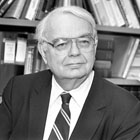
-
Harvard Gumboots speak with feet
Students from around the world come together at Harvard to speak the rhythmic language South African miners created during apartheid.
-
Brigham pilot program connects people with family histories
A Harvard Medical School instructor at Brigham and Women’s Hospital is spearheading a pilot project to encourage Brigham employees to gather detailed family health histories to give health care officials an edge fighting inherited diseases.
-
The first word on nouns and verbs
Since humans learned to speak, they have put their words into two basic categories, nouns and verbs. Nouns denote objects; verbs refer to actions. Dictionaries of specialized words have been added by bankers, lawyers, scientists, and clergy, but this core distinction remains.
-
Controlling long-term memory
Harvard University biologists have identified a molecular pathway active in neurons that interacts with RNA to regulate the formation of long-term memory in fruit flies. The same pathway is also found at mammalian synapses, and could eventually present a target for new therapeutics to treat human memory loss.
-
University Library receives grant
The Harvard University Library (HUL) has received a grant of $600,000 from the Andrew W. Mellon Foundation for the development of a registry of authoritative information about digital formats. Detailed information about the format of digital resources is fundamental to their preservation. The two-year project will result in a new Global Digital Format Registry (GDFR), which will become a key international infrastructure component for the digital preservation programs of libraries, archives, and other institutions with the responsibility for keeping digital resources viable over time.
-
HUAM names Ebbinghaus new curator of ancient art
The Harvard University Art Museums (HUAM) recently announced the appointment of Susanne Ebbinghaus as the George M.A. Hanfmann Curator of Ancient Art. Ebbinghaus has been serving as a curatorial research associate in the Department of Ancient and Byzantine Art and Numismatics at Harvard University Art Museums and recently spent a year at the University of Toronto, investigating cultural exchanges between Greece and the Near East on a fellowship from the Gerda Henkel Foundation. The appointment will become official in early February.
-
The Silk Road Ensemble
Yo-Yo Ma and the Silk Road Ensemble perform during Learning From Performers, sponsored by Office for the Arts, September 2005.
-
Portraits of dissent on view at Davis Center
Norton Dodge is an economist, a Harvard alumnus, and a savior of smuggled Soviet art. Smuggler is not usually a moniker that one would choose, but for Norton Dodge it is a badge of honor. Concerned with the plight of artists living under Soviet rule, many of whom found their work prohibited by the regime, Dodge smuggled almost 20,000 works of art out of the Soviet Union during the 1950s, ’60s, and ’70s.
-
Greenblatt teases out a knowable Shakespeare
Some years ago, before Stephen Greenblatt made the move from Berkeley to Harvard, a screenwriter named Marc Norman came to see him. Norman wanted to write a screenplay about William Shakespeare and had come to interview Greenblatt about the playwrights life.
